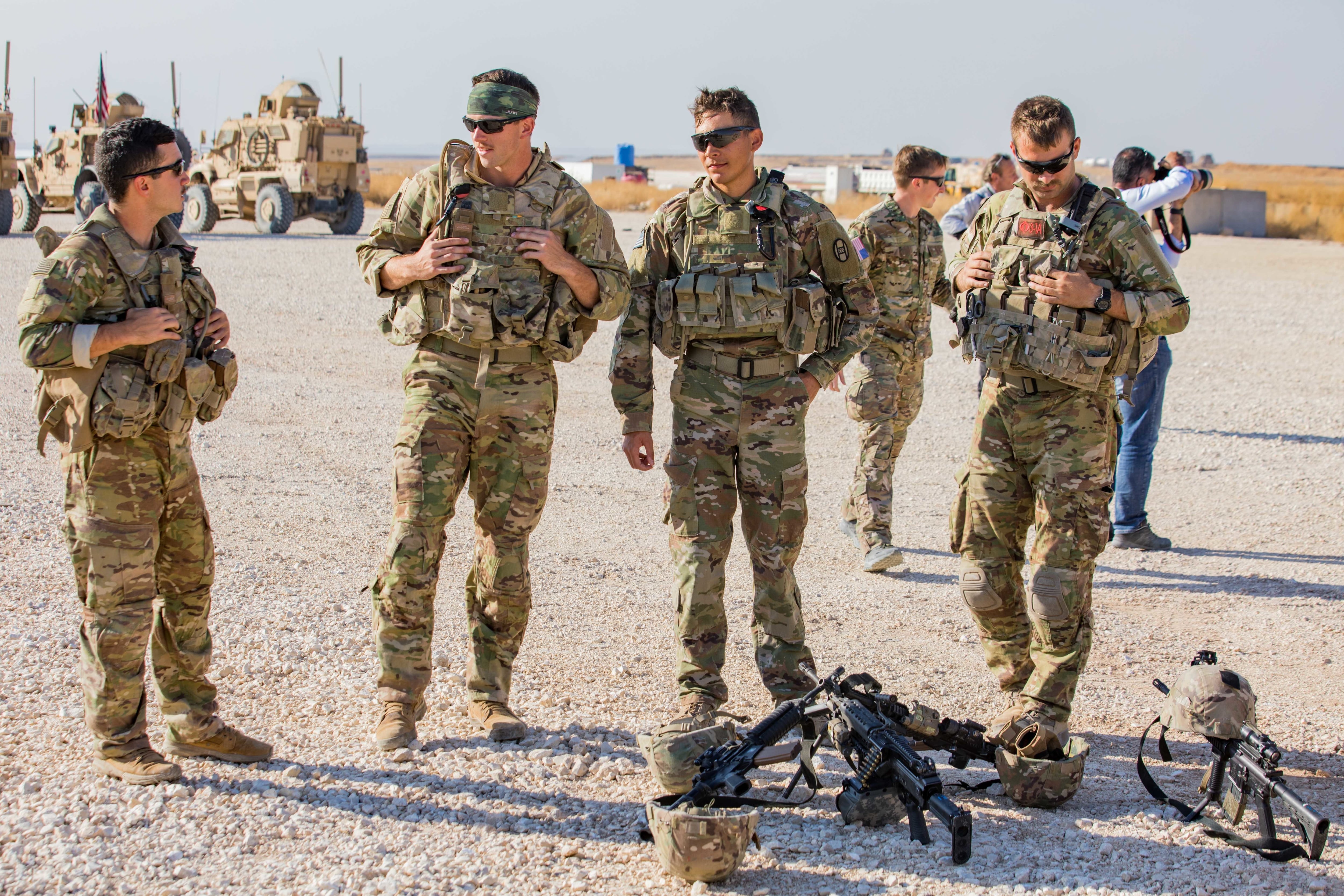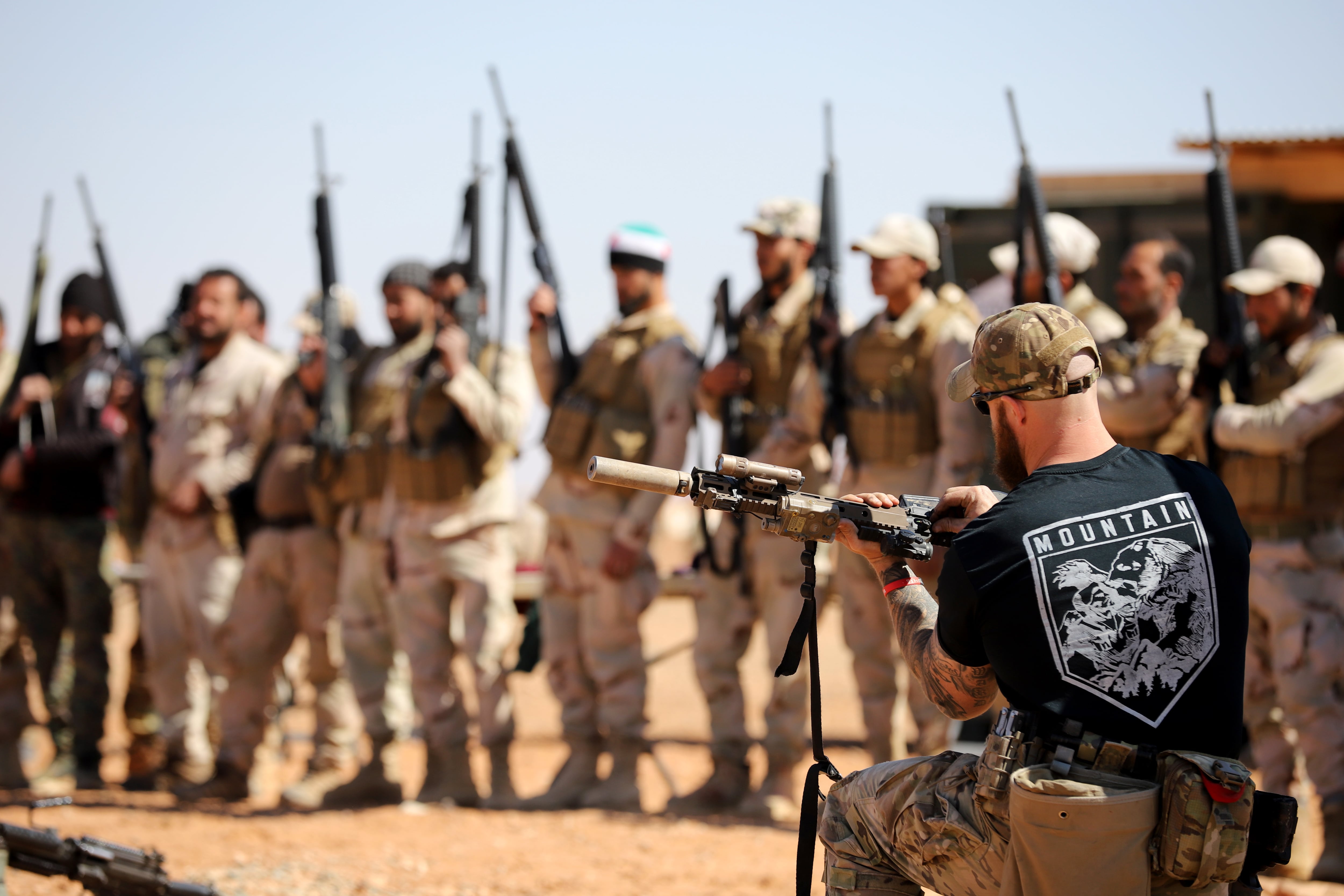Bradley fighting vehicles have headed back into eastern Syria, the Pentagon announced Friday, a move that comes after a tense encounter with Russian forces left four U.S. troops lightly injured last month.
The return of mechanized units also comes as the U.S. military deployed Sentinel radar and increased the frequency of fighter jet patrols over U.S. forces in that part of Syria, according to U.S. Central Command spokesman Navy Capt. Bill Urban.
“These actions are a clear demonstration of U.S. resolve to defend Coalition forces in the [Eastern Syria Security Area], and to ensure that they are able to continue their Defeat-ISIS mission without interference,” Urban said in an emailed statement. “The Defense Department has previously deployed Bradleys to northeast Syria pursuant to these goals."
Bradleys from the 30th Armored Brigade Combat Team were last sent to Syria in late October 2019 to guard oil infrastructure from Islamic State militants, officials said at the time.
They were quietly pulled out after roughly a month when combined patrols with Turkish forces “never materialized” and the “mission requirements changed,” a military official in the region previously told Army Times.
RELATED

The armored vehicles sent back this month belong to 2nd Brigade, 1st Armored Division, out of Fort Bliss, Texas. The unit is deployed to the Middle East in support of Operation Spartan Shield, which is based in Kuwait.
“The mechanized infantry assets will help ensure the force protection of coalition forces in an increasingly complex operating environment in northeast Syria,” said Col. Wayne Marotto, spokesman for the Inherent Resolve mission. “The coalition forces remain steadfast in our commitment of ensuring the enduring defeat of Daesh [ISIS].”
U.S. and Russian officials traded blame in late August after troops from both countries collided in northeast Syria while on patrol.
A Russian vehicle sideswiped a light-armored American one, injuring four U.S. troops, while two Russian helicopters flew about 70 feet over top the altercation, U.S. officials said following the incident.
For their part, Russian officials said U.S. troops were blocking their ground patrol and Russian military police "took the necessary measures to prevent an incident and to continue the fulfillment of their task.”
RELATED

Though the U.S. and Russian militaries have protocols to prevent such incidents, there have nevertheless been less worrisome altercations periodically over the past year.
Russian forces are in the country backing Syrian President Bashar al-Assad and have long called for U.S. troops to leave.
“The United States does not seek conflict with any other nation in Syria, but will defend Coalition forces if necessary," Urban added in his statement.
Despite the loss of ISIS' territorial caliphate and the slaying of its leader last year in a U.S. raid, the extremist group has continued to launch deadly attacks in Iraq and Syria.
There are roughly 500 U.S. troops in Syria’s northeast guarding oil fields from ISIS and working alongside the Syrian Democratic Forces.
Kyle Rempfer was an editor and reporter who has covered combat operations, criminal cases, foreign military assistance and training accidents. Before entering journalism, Kyle served in U.S. Air Force Special Tactics and deployed in 2014 to Paktika Province, Afghanistan, and Baghdad, Iraq.



